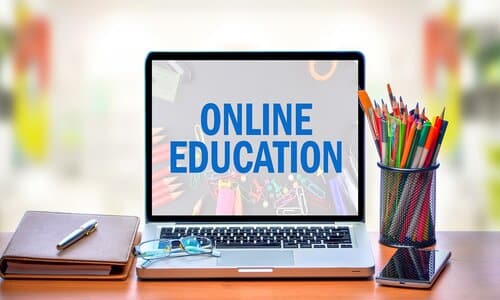Can Social Media Be Used In Education?
 By
By
Social media is often viewed as part of recreational activity, and many people think that using such platforms is a waste of time. However, not only are people able to earn a living through social media, but there are ways that it is used in education. Keep reading to find out how to get educated through social media. Content created on social media is just like the rest of the internet. By that we mean that just as there are good websites, there are bad ones too. In the same way, social media channels can be either good or bad. Some social media influencers use their platform to support noble causes. Some may even use less serious platforms such as TikTok to do so. They may even use websites like TikTokStorm to reach a wider audience and raise awareness. Our point is that social media is not inherently bad. It just gets a bad reputation because too many people use it for the wrong reasons. Too many people use social media as a means to get famous using cheap tactics and clickbait, and far too many people hide behind a keyboard trolling in the comments section. If you visit any of the major social media websites, you are likely to find educational content of all types from all different genres. Whether it is engineering, math, history, medicine, or arts. For practically every subject you could think of, there is probably some form of educational content on social media. If educators do not want to be content creators, that doesn’t mean they cannot benefit from social media. They can always use the content as part of theory teaching methods. Just as an English teacher might use contemporary novels as a way of exploring literary devices, a physics professor can show video of experiments that they might not have access to. Despite the major advantage of free education available to anyone who has an internet connection, there are still some drawback. The main problem is misinformation or false information. What does that mean? You’ve probably heard the saying, “don’t believe everything you read online”. Well, social media is almost unregulated, so there is a lot of room for content creators to spread misinformation or to teach incorrect information. For anyone who is relying on social media for education, this poses a problem. Teachers and professors recommending social media content to their students should check the content thoroughly to ensure that their students aren’t being misinformed. There are both benefits and drawbacks to using social media, especially as an educational tool. If there are no other sources of information, such platforms are still highly valued for free educational content that can help people educate themselves with little to no money involved. However, it is always a good idea to research educational content online well. Try to use several sources and get your social media education from well known members of the academic society. For example, an astrophysicist like Neil deGrasse Tyson is a well-known public figure with several published books. There is no reason to doubt the validity of the content he creates. On the other hand, someone who claims to have credentials but cannot be independently verified is not necessarily scamming, but there is certainly a possibility. At the end of the day it is up to the student to do their due diligence and weed out the bad channels. Why Social Media Gets A Bad Reputation
Social Media As An Educational Platform
How can educators use social media?
The Problem With Social Media As An Educational Tool
Conclusion: Social Media Is A Double Edged Sword






